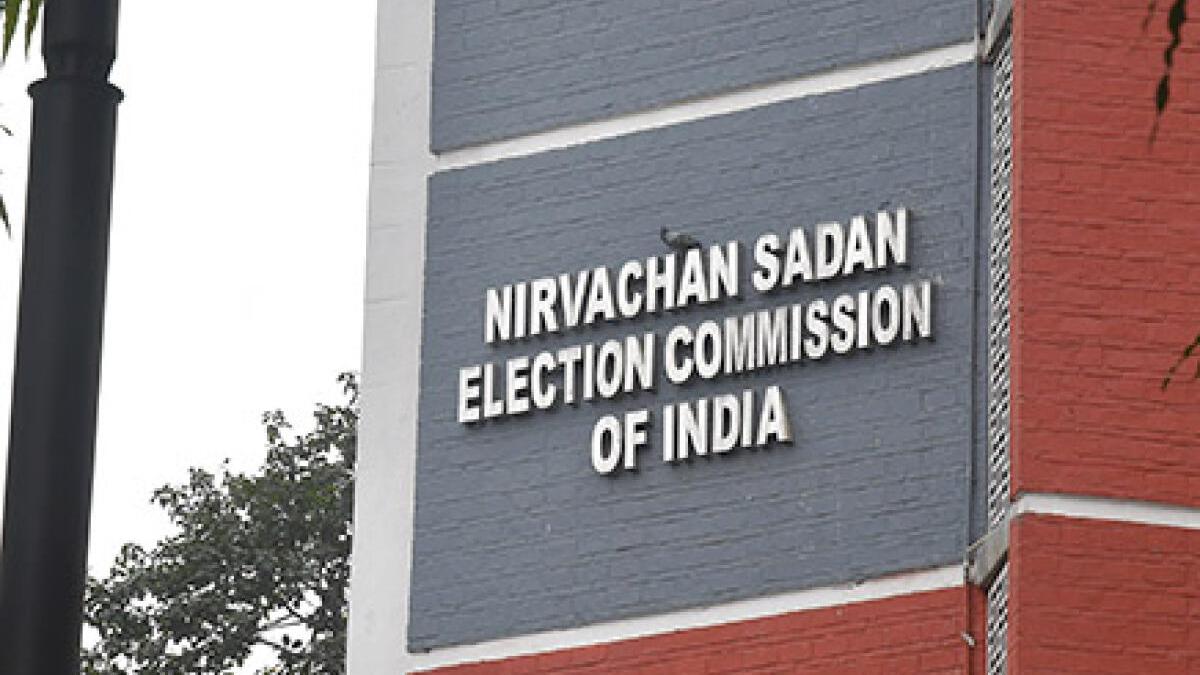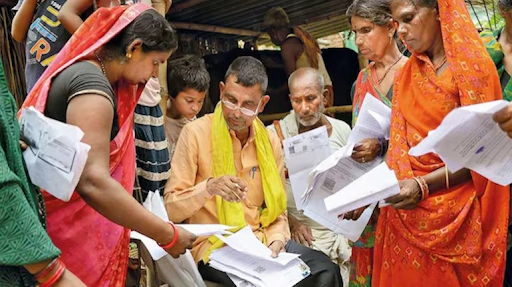



The Election Commission is delisting Registered Unrecognized Political Parties due to their inactivity over six years and failure to submit financial reports. This action is part of a broader electoral reform effort aimed at increasing transparency and accountability in political funding, strengthening democratic framework by ensuring participation from only active and genuine political entities.

Copyright infringement not intended
Picture Courtesy: The Hindu
Context
The Election Commission of India (ECI) announced the delisting of 474 Registered Unrecognised Political Parties (RUPPs) for defying statutory norms, including non-participation in elections over the past six years. Following this, 2,046 RUPPs remain registered nationwide.
Definition: RUPPs are political associations registered with the Election Commission of India (ECI) under Section 29A of the Representation of the People Act, 1951 (RPA, 1951) but not yet recognised as state or national parties based on electoral performance.
Privileges:
Key Compliance Rule: Must contest at least one election every six years, failing which they face de-listing.
Delisting Criteria
As per EC guidelines:
The ECI does not have the explicit power to de-register a political party. The Supreme Court has held that the ECI can only de-register a party if its registration was obtained by fraud, if the party ceases to have allegiance to the Indian Constitution, or if it is declared unlawful by the government.
Scale and Features of RUPPs
State Party
A party must meet any one of the following:
National Party
A party must meet any one of the following:
|
Registered Unrecognized Political Parties (RUPPs) |
Recognized Parties (National/State) |
|
|
Recognition Status |
Registered with the ECI but have not met the criteria for national or state party recognition. |
Registered and meet specific criteria based on their performance in Lok Sabha or state assembly elections. |
|
Election Symbol |
Must choose from a list of "free symbols" on a first-come-first-served basis during elections. |
Allotted a reserved symbol that is exclusive to the party nationwide (for national parties) or statewide (for state parties). |
|
Star Campaigners |
Allowed to have 20 star campaigners whose travel expenses are not counted in the election expenditure of candidates. |
Allowed up to 40 star campaigners, double the number for RUPPs. |
|
Free Electoral Rolls |
Do not automatically receive free copies of the electoral rolls. |
Receive two sets of free electoral rolls from the ECI. |
|
Broadcast Time |
Are not entitled to free airtime on state-owned media like Doordarshan and All India Radio during elections. |
Get dedicated time slots on state TV and radio for election campaigning. |
Constitutional Mandate: Under Article 324, the ECI ensures free and fair elections, including party registration and oversight.
Significance of Recent De-listing Drive:
Threat to Democratic Purity: Dormant RUPPs erode public faith by associating politics with opacity; post-2024 elections, ADR flagged 2,000+ non-filers, risking black money influx.
Regional Imbalance: Concentration in populous states strains ECI resources and encourages local proxy politics.
Judicial & Policy Gaps: Despite SC mandates on donor disclosure, implementation lags; ECI autonomy is tested under political pressures.
Global Scrutiny: Electoral transparency indices (e.g., V-Dem) could decline if reforms stall, affecting FDI and diaspora confidence.
Periodic De-Listing Drives: Mandate annual reviews by ECI, targeting non-contesting parties; integrate AI for automated compliance checks.
Tighter Registration Norms: Amend RPA, 1951, to require minimum membership and pre-registration affidavits on funding sources.
Enhanced Audits and Oversight: Link ECI with Income Tax Dept. for real-time scrutiny of Section 13A claims; impose penalties for non-filers.
Digital Transparency: Fully operationalise PPRTMS for public dashboards on party status, filings, and audits; mandate e-verification for donations.
Stakeholder Engagement: Collaborate with ADR and civil society for monitoring; educate via SVEEP (Systematic Voters' Education and Electoral Participation) campaigns on responsible party formation to deter misuse.
Source: The Hindu
|
PRACTICE QUESTION Q. Consider the following statements about the Registered Unrecognized Political Parties (RUPPs):
Which of the above statements is/are correct? A) 1 only B) 2 only C) Both 1 and 2 D) Neither 1 nor 2 Answer: B Explanation: Statement 1 is incorrect. RUPPs can nominate up to 20 "star campaigners". Statement 2 is correct. Candidates of registered parties get preference in the allotment of election symbols over independent candidates. |
A RUPP is a political party that is registered with the Election Commission of India (ECI) under Section 29A of the Representation of the People Act, 1951, but has not yet met the criteria to be recognized as a state or national party.
RUPPs enjoy certain privileges, such as income tax exemption on their income and donations under Section 13A of the Income Tax Act, 1961. They can also nominate up to 20 "star campaigners" and are eligible for a common election symbol under certain conditions.
The ECI has been delisting RUPPs that are found to be inactive, have not contested elections for a long time, and have not complied with statutory requirements like submitting annual audit accounts and contribution reports




© 2026 iasgyan. All right reserved